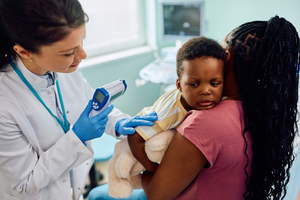Find Hepatitis test
in Boston, MA.
Own a clinic? Add your location.
Help patients book appointments with you on Solv. It's free!
20 instant-book locations

Carbon Health Urgent Care, Boston - Back Bay
Carbon Health Urgent Care

CVS Clinic with Carbon Health Urgent Care, Charlestown
CVS Clinic with Carbon Health Urgent Care

Carbon Health Urgent Care, Boston- Fenway
Carbon Health Urgent Care

Carbon Health Urgent Care, West Roxbury
Carbon Health Urgent Care

Carbon Health Urgent Care, Boston - Downtown Boston
Carbon Health Urgent Care

AFC Urgent Care, Back Bay
AFC Urgent Care

AFC Urgent Care , Medford
AFC Urgent Care

AFC Urgent Care, Cambridge Porter Square
AFC Urgent Care

American Family Care, Malden
American Family Care

Carbon Health Urgent Care, Brighton
Carbon Health Urgent Care

AFC Urgent Care, Revere
AFC Urgent Care

AFC Urgent Care, Watertown
AFC Urgent Care

AFC Urgent Care, Chestnut Hill
AFC Urgent Care

AFC Urgent Care, Arlington
AFC Urgent Care


American Family Care, Saugus
American Family Care

American Family Care, Dedham
American Family Care

AFC Urgent Care , Waltham: Trapelo Rd
AFC Urgent Care

Woburn Urgent Care
Woburn Urgent Care

AFC Urgent Care, Waltham
AFC Urgent Care
Own a clinic? Add your location.
Help patients book appointments with you on Solv. It's free!
About Hepatitis test
Who should get tested for hepatitis?
Anyone who has been exposed to the virus, particularly through unprotected sex, sharing needles, or from an infected mother to her newborn during childbirth, should get tested for hepatitis. The CDC also recommends testing for those born between 1945 and 1965, as this group has a higher rate of hepatitis C. It's also important for healthcare and public safety workers, as well as those with liver disease or HIV, to get tested.
Importance of getting tested
Getting tested for hepatitis is crucial as it helps in early detection, which can prevent serious health complications such as liver disease and liver cancer. According to the CDC, many people with hepatitis don't experience symptoms until the disease has already caused significant liver damage. Therefore, getting tested can lead to early treatment, reducing the risk of further health complications.
Hepatitis testing options in Boston, MA:
Urgent care and walk-in clinics
In Boston, urgent care and walk-in clinics like Carbon Health Urgent & Primary Care and PhysicianOne Urgent Care provide hepatitis testing. These clinics offer the convenience of same-day and next-day appointments, which can be booked through Solv’s website and mobile app.
Primary care providers
Primary care providers are also a good option for hepatitis testing. They can provide a comprehensive health assessment and guide you through the testing process.
Free STD testing and community health centers
Boston also has free STD testing and community health centers that provide hepatitis testing. These centers are crucial for those who may not have insurance or who prefer a more community-based approach to their healthcare.
At-home testing
At-home testing is another option for those who prefer the privacy and convenience of testing in their own home. These tests can be ordered online, done at home, and then sent back to a lab for analysis.
Prevalence of hepatitis in Boston
The prevalence of hepatitis in Boston is comparable to the national average. However, certain areas in Suffolk County, where Boston is located, have slightly higher rates. This could be due to several factors, including socioeconomic status, access to healthcare, and awareness about the disease.
Risk factors related to hepatitis in Boston
Risk factors for hepatitis in Boston include unprotected sex, intravenous drug use, and being born to a mother with hepatitis. Other factors that could contribute to the prevalence of hepatitis in Boston include the city's high population density and the presence of certain high-risk groups.
Other STDs in Boston
In addition to hepatitis, other common STDs in Boston include gonorrhea, chlamydia, HIV, and syphilis. The rates of these STDs are also comparable to national averages, but like hepatitis, certain areas and populations in Boston may have higher rates. It's important for individuals who are at risk for hepatitis to also consider testing for these other STDs.
Solv has strict sourcing guidelines and relies on peer-reviewed studies, academic research institutions, and medical associations. We avoid using tertiary references.
Related Searches
DOT Exam in Boston
Ear Wax Removal in Boston
Sports Physicals in Boston
A1C Test in Boston
Allergy Testing in Boston
Basic Metabolic Panel in Boston
CMP Test in Boston
Diabetes Test in Boston
Diagnostic Test in Boston
H Pylori Test in Boston
Hepatitis test in Boston
Lab Tests in Boston
Mono Test in Boston
Pregnancy Test in Boston
Pulmonary Function Test in Boston
RSV Test in Boston
STD Testing in Boston
Strep Test in Boston
TB Test in Boston
Thyroid Test in Boston
Vitamin D Test in Boston
Aetna Urgent Care
Blue Cross Blue Shield Urgent Care
Cigna Urgent Care
COVID-19
Flu
United Health Urgent Care
» All services in BostonFind hepatitis test
Nearby cities
Everyday Healthcare, Simplified
Expert advice to help you live your best life







